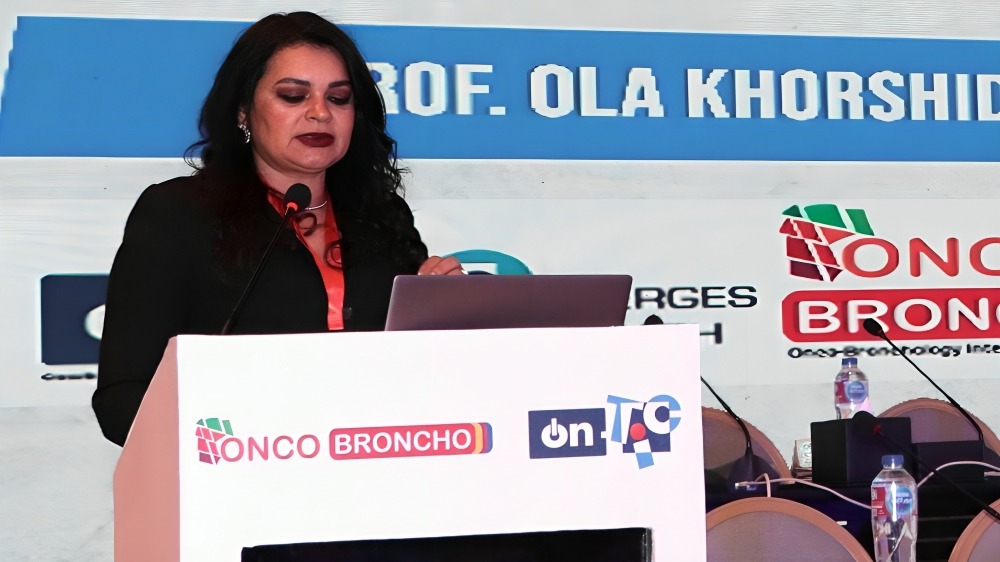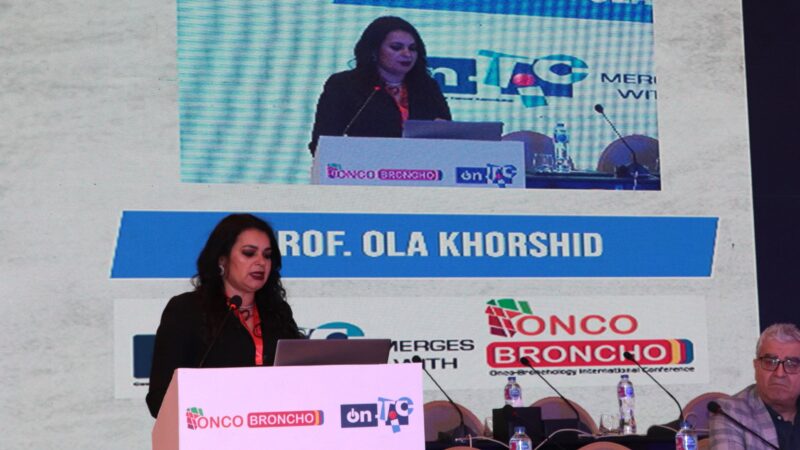
Highlight of Prof. Ola Khorshid’s Talk at BGICC 17th Conference: Advancements in cancer management
Prof. Ola Khorshid provided an in-depth overview of advancements in cancer management at BGICC 2025, with a particular focus on systemic therapies, surgical interventions, and immunotherapy developments.
Here are the key takeaways from her presentation:
1. Shift in Treatment Paradigms:
- Cancer management has evolved significantly, transitioning from traditional chemotherapy to immunotherapy and targeted treatments.
- Platinum-based regimens were the standard for years, but the integration of immunotherapy has drastically improved survival rates in recent times.
2. Role of Inflammation in Disease Progression:
- Prof. Khorshid emphasized the critical role of chronic inflammation in cancer pathogenesis.
- Markers such as TMB (Tumor Mutation Burden) have limited utility in certain cases, but inflammation-based mechanisms remain a research focus.
3. Immunotherapy Revolution:
- Immunotherapy options, such as checkpoint inhibitors (anti-PD-1/PD-L1), are now integral in first-line treatments.
- Studies have shown long-term survival benefits, with some patients achieving 4-year survival rates of up to 20%.
4. Challenges in Biomarkers:
- Despite advancements, reliable biomarkers for certain cancers remain elusive, making it difficult to predict treatment responses accurately.
5. Surgical and Systemic Treatment Guidelines:
- New international guidelines underscore the importance of combining surgery with systemic therapies.
- The recommendation for perioperative chemo-immunotherapy has become a strong standard for specific patient subsets.
6. Clinical Trials and Innovations:
- Prof. Khorshid highlighted pivotal trials such as IMpower743, which have shaped the current approach to systemic therapies.
- Novel combination strategies, including dual immunotherapy or chemo-immunotherapy, continue to show promise.
7. Unmet Needs and Future Directions:
- While immunotherapy has transformed outcomes, challenges remain, particularly in patients with progressive disease or limited responses.
- Ongoing trials, such as metastatic-focused Phase 2 and Phase 3 studies, aim to refine and expand treatment options.
8. Key Message:
- The integration of immunotherapy into frontline treatments is changing the trajectory of survival for many patients, offering hope where none existed before.
- A personalized approach to treatment, focusing on patient-specific factors rather than one-size-fits-all solutions, is essential.
Prof. Khorshid concluded her talk at BGICC by reiterating the need for continuous innovation and collaboration to address the unmet needs in oncology. Her insights provided a comprehensive update on the future of cancer care, emphasizing both the progress made and the challenges ahead.

Further Reading:
Highlights from the 17th BGICC: Day 1 of Breast-Gynecological International Cancer Conference
How Egypt is closing the gap in breast cancer care: Dr. Hesham El-Ghazaly leads the conversation
Debate Highlights by Julie Gralow: Is There a Role for Immunotherapy in Early-Stage TNBC?
Scientific Insights from Prof. Hope Rugo: Advancements in Metastatic HER2+ Breast Cancer Therapy
-
Challenging the Status Quo in Colorectal Cancer 2024
December 6-8, 2024
-
ESMO 2024 Congress
September 13-17, 2024
-
ASCO Annual Meeting
May 30 - June 4, 2024
-
Yvonne Award 2024
May 31, 2024
-
OncoThon 2024, Online
Feb. 15, 2024
-
Global Summit on War & Cancer 2023, Online
Dec. 14-16, 2023
